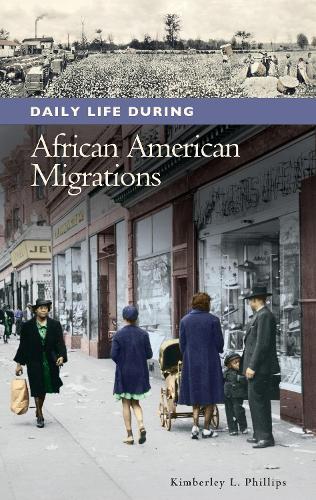
Daily Life during African American Migrations
(Paperback, NIPPOD)
Available Formats
Publishing Details
Daily Life during African American Migrations
By (Author) Kimberley L. Phillips
Bloomsbury Publishing USA
Bloomsbury Publishing USA
30th November 2023
NIPPOD
United States
Classifications
Tertiary Education
Non Fiction
Migration, immigration and emigration
304.808996073
Physical Properties
Paperback
256
Width 154mm, Height 232mm, Spine 18mm
400g
Description
This book examines the century-long migration of African Americans who moved within the South after the Civil War and then left to settle permanently in other regions, irrevocably altering the political, social, and cultural history of the United States; and considers these movements within the broader historical, political, and cultural context of the African Diaspora. Daily Life during African American Migrations focuses attention to the everyday social, cultural, and political lives of migrants in the United States as they established communities far away from their former homes. This book examines blacks' labor and urban experiences, social and political activism, and cultural and communal identities, while also considering the specificity of African Americans' migration as part of their long struggle for freedom and equality. The author merges information from black migration studies, which focus on the internal movement of African American people in the United States, with African Diaspora studies, which consider peoples of African descent who have settled far from their native homeseither voluntarily or through duressto document how these immigrants and their children create new communities while maintaining cultural connections with Africa. The stories of the nine million African Americans who collectively left the South between 1865 and 1965and the millions more who left the Caribbean and Africanot only document this long history of migration, but also present compelling human drama.
Reviews
Students of cultural history will appreciate the close attention Phillips pays to the social and political drivers that caused African Americans to move around the United States and her consideration of how the group's migration affected the evolution of African American culture. The book really shines in its 15-page epilogue, which deals with history from 1965 to 2005 and includes more information about modern African and Caribbean influences on black American culture. . . . A solid overview of post-slavery African American migration. * Library Journal *
Author Bio
Kimberley L. Phillips is Professor of History and Dean of the School of Humanities and Social Sciences, City University of New York, Brooklyn College, USA.
